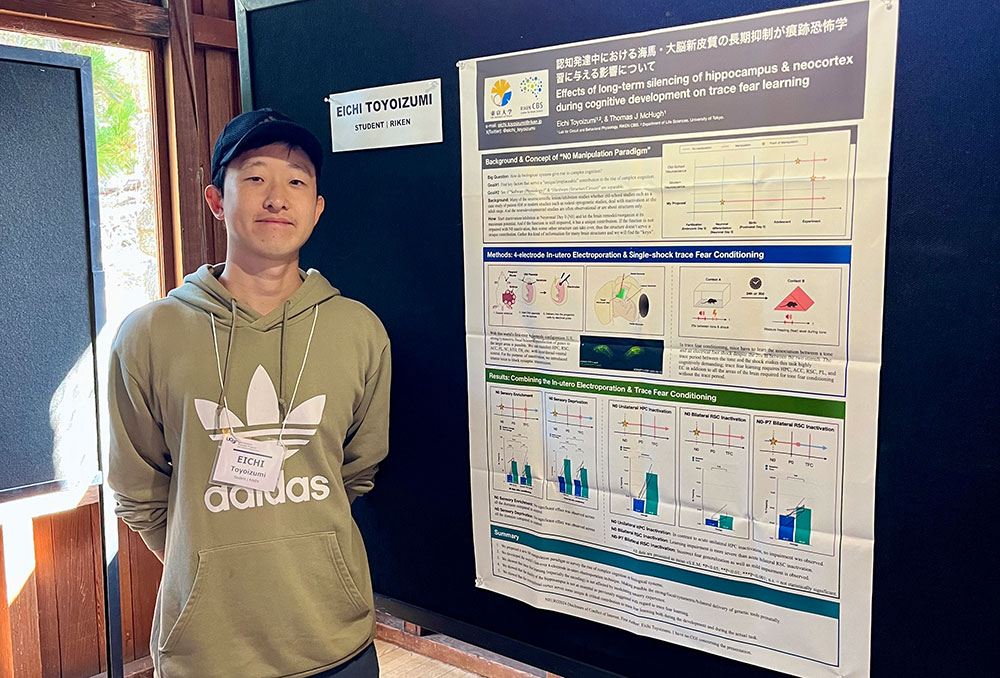Eichi Toyoizumi
Laboratory for the Circuit and Behavioral Physiology

Lab visit
Two of the buildings I visited at the UCSF Mission Bay campus, the Sandler Building and the Genentech Hall, in fact had a somewhat similar set up to CBS’s very own Neural Circuit Genetics Research Building. They had shared benches, surgery rooms, and a lot of individual behavior/recording rooms. The Sandler Building is also organized so that each floor has a common research theme to foster equipment sharing and collaboration. The newer Weill Neurosciences Building was a bit different, as it is half hospital and half research building.
After visiting several different labs, I had the impression that each lab operates very differently from each other, and yet the communication and collaboration within the UCSF community is very tight and strong.
Poster session
I presented part of my PhD work, which I had already presented at a couple of different conferences such as the Japan Neuroscience Society (JNS) Meeting. The reactions and comments I received at the UCSF retreat were actually very different. At JNS, people showed more interest in the technique and the behavioral results, but at UCSF I received more interest in the experimental paradigm and concept of the study. I believe this may be a reflection of UCSF’s emphasis on the big picture in their training. During the talk session, I definitely felt that the research done at UCSF has a great deal of focus on “good paradigm/good methodology.” I was too busy explaining my poster to listen to other poster presentations, but looking through them, I was deeply impressed by the attention to detail in logic, and to the big picture leading to medical applications.
As an aside, I liked how UCSF students pointed out what they really liked as well as giving comments, and they were really expressive about their opinions . It probably helped that there were many 1st-3rd year PhD students joining retreat. Nevertheless, they had the positivity that we forget too often.
How will the experiences in the program pay off for your science career?
his was my first time in the US in about 4 years since I graduated, and the first time I had the chance to discuss my project with fellow PhD students and neuroscientists in the US. So, it was a valuable reality check in terms of how my project is going to be perceived outside Japan , and a stimulating experience with different types of comments that I don’t usually receive in Japan. And with that, I’m more motivated with a clearer direction of my research.
Personally, I have always preferred to conduct research at places that don't have an undergraduate program, such as RIKEN or Fred Hutch. UCSF is one of these places, as they only have a graduate program, and they are very similar to Fred Hutch in that their basic science research is closely tied to the hospital function and clinical research. As a very much basic science oriented person myself, I find it very important that I stand somewhere close to clinical application and medicine.—otherwise, I lose track of what’s going on on the other side. I’d surely consider UCSF as a place to further pursue my research, and that’s saying something since they don’t have tennis courts!



